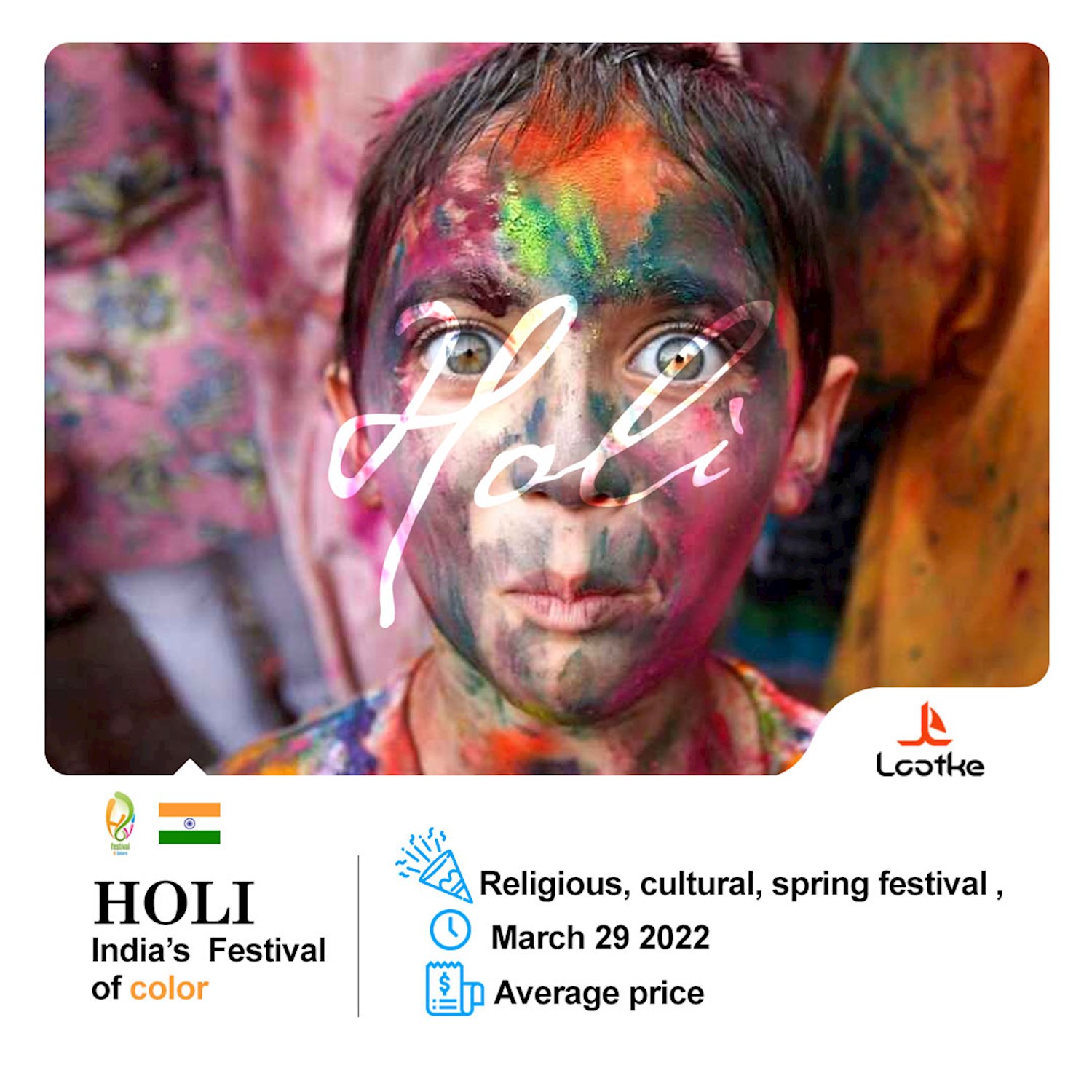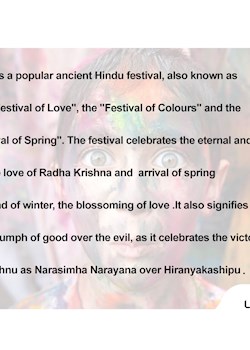Attractions
Holi Festival, India
Holi is a popular ancient Hindu festival, also known as the "Festival of Love", the "Festival of Colours" and the "Festival of Spring". The festival celebrates the eternal and divine love of Radha Krishna and arrival of spring, the end of winter, the blossoming of love .It also signifies the triumph of good over the evil, as it celebrates the victory of Vishnu as Narasimha Narayana over Hiranyakashipu.
The Holi festival has a cultural significance among various Hindu traditions of the Indian subcontinent. It is the festive day to end and rid oneself of past errors, to end conflicts by meeting others, a day to forget and forgive. People pay or forgive debts, as well as deal anew with those in their lives. Holi also marks the start of spring, an occasion for people to enjoy the changing seasons and make new friends.
The Holi festival has cultural significance among various Hindu traditions in the Indian subcontinent. This day is a celebration of ending and letting go of past mistakes, ending conflicts by meeting others, a day of forgetting and forgiveness. People pay off or forgive debts and also make new deals with those in their lives. Holi also marks the beginning of spring, an opportunity for people to enjoy the change of season and make new friends.
-
Kerala India
-
visit Old Delhi
-
Taj Mahotsav, India
-
Jaisalmer Fort India
-
Hornbill Festival, India
-
Diwali India
-
Dusshera India
-
Pushkar Camel Fair, Rajasthan, India
Labels :
India Holi Festival march festivals indian festivals visit india travel to india march buddhist caves ajanta india' india vally of flower india Virupaksha Temple india tadoba andhari india Thiksey Monastery India Amritsars Golden India Jaisalmer Fort India indian festival Lootke visa visit visa travel festivals and carnivals World famous festivals and ceremonies
